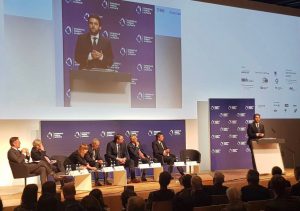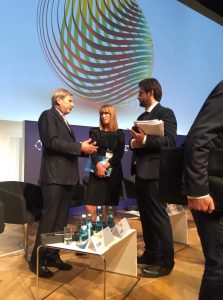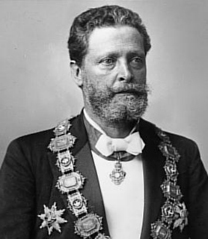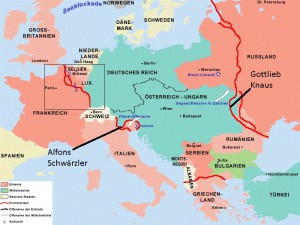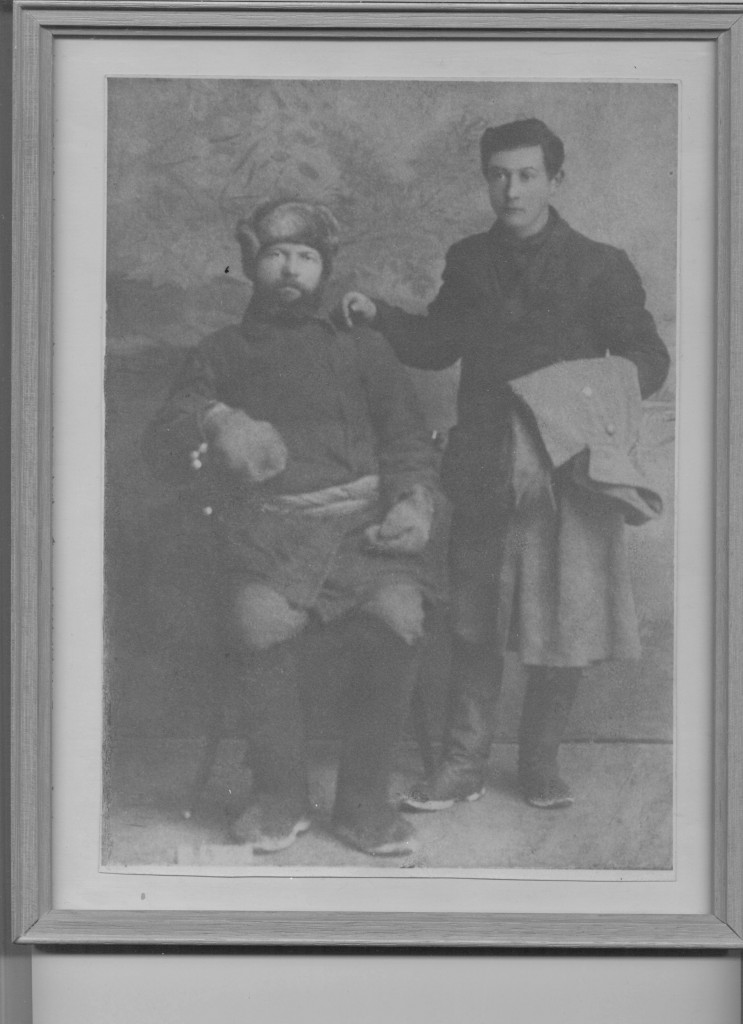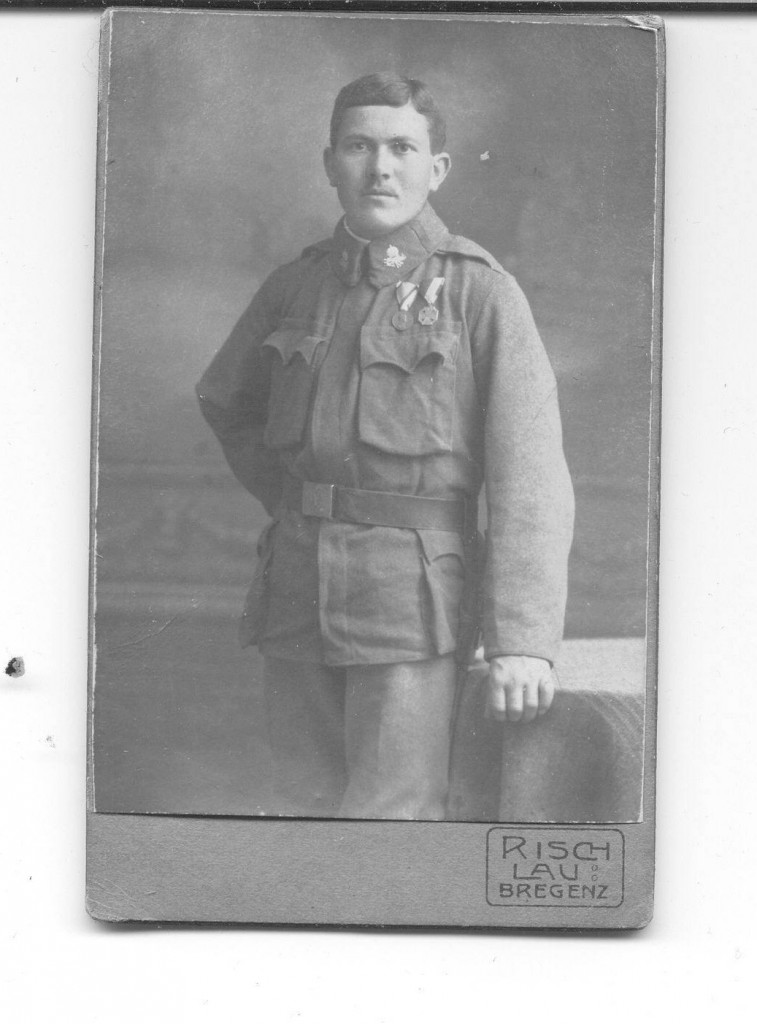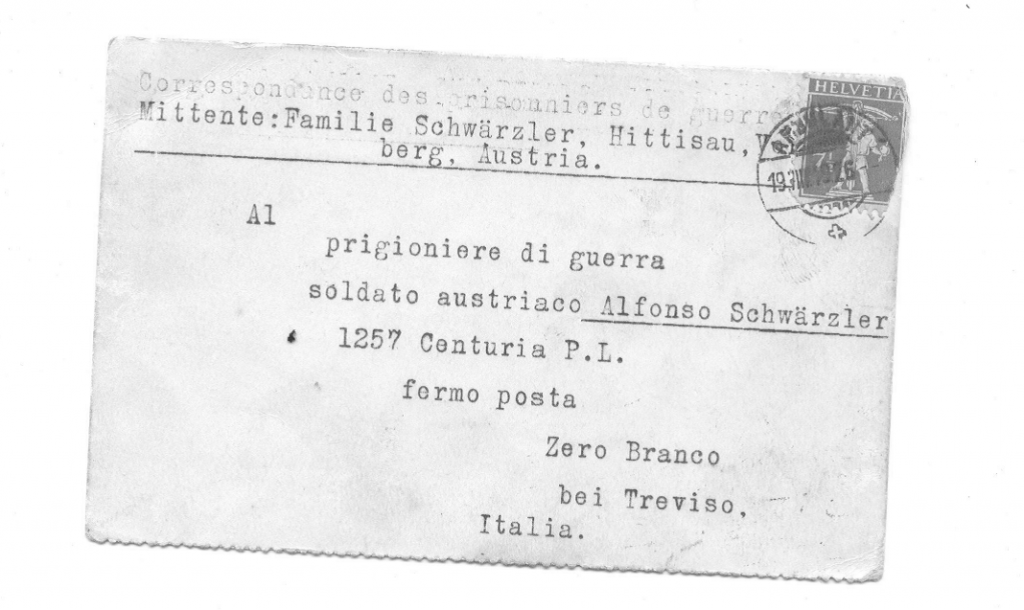Vienna, early December 2007.
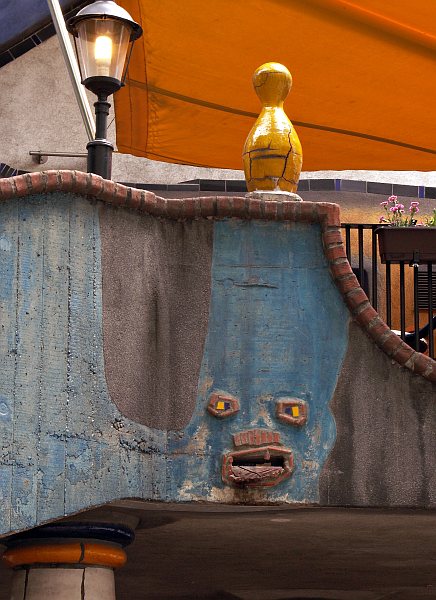
Vienna – Hundertwasser House
It is a anecdote hard to forget, told off the record to a group of visitors from the Balkans by one of the most influential journalists in the country. In the previous government the Austrian minister of defence told this journalist that when he was thinking about whether to send Austrian troops abroad on one particular occasion, he first sought the opinion of the editor/owner of Austria’s largest tabloid, the Kronenzeitung. Only then did he turn for advice to his generals. It was one of several occasions during these two December days when our visitors from the Balkans were surprised: is this how Austria, today one of the richest countries in the world, actually works?
This anecdote might of course be embellished (the only person who would know whether this is how decisions on military deployment are commonly made would be the former minister himself), but what is remarkable is the fact of a minister telling such a story to Austrian media representatives without blushing. The explanation offered by journalists we had invited to explain Austria to their Balkan visitors was this: Kronenzeitung is read every day by 3 million Austrians (out of a total population of just over 8 million, children included), which is the highest coverage of any newspaper in the world in any given country, and this gives it extraordinary influence.
Dear reader, before proceeding with an account of this Balkan exploratory visit to Vienna, let me ask you a personal question and try to make a more general point: how many serious books have you read in your whole life about modern Austria? Let me remove “serious” and broaden my question: how many books have you ever read about modern society in the Netherlands, Greece, Finland, Denmark, Portugal? If you belong to the majority of people who would honestly admit that they have not actually read much or anything about any of these proud members of today’s European Union, are you going to do something about this in 2008?
I remember my own shock when I read an excellent book about Switzerland a few years ago (Why Switzerland by Jonathan Steinberg: if there is only one book about Switzerland that you will read, this could be the one). I discovered it by chance perusing the shelves in a bookshop in DC: it was the first book I ever read about this country. The book appropriately starts with the question: “Why should I read about Switzerland, when there are so many other things to read about?”. It then answers this question in the most brilliant way, discussing history, politics, wealth and identity, before it reaches its conclusion, “why Switzerland matters”:
“the dilemma of majority will and minority rights can be overcome by the ingenuity of men. There is nothing startling or very new about these ideas, but it is striking how little they are observed. The Swiss believe that there will always be a political compromise or bit of constitutional machinery that will get round a given difficulty, whether it is the rights of the Jurassiens or conscientious objectors … the Swiss in their lumpish, practical way assert the defectiveness of all government at all times, and they are right to do so.”
The book fascinated me at every step: when it describes how “until recently Swiss Roman Catholics lived in a ghetto”: a Swiss Catholic “might be born in a Catholic hospital, attend Catholic schools from kindergarten to university, read Catholic newspapers and magazines, vote for the Catholic party and take part in Catholic clubs and associations.” When it quotes a Luzerne politician: “For me Switzerland is only of interest as long as the canton of Luzern – this is my fatherland – is in it. If Canton Luzern no longer exists as a free, sovereign member of the Hellenic Confederation, then Switzerland is as irrelevant to me as the lesser or greater Tartary.” The author describes how Swiss federalism in the 1848 constitution was a response to civil war between liberals and “what they must have seen as bigoted, backward Catholic communities”: how the liberals won that war, but then shared the victory: and how the “transformation of religious hatred into religious accommodation owes a great deal to the institutions which 1848 established and, in particular, to two: federalism and semi-direct democracy.” Swiss federalism allowed the Swiss to resolve the religious issue. It embodies their “painful experience of conflict and its resolution.”
I will write about Switzerland, and what this experience might teach the Balkans in particular, on this blog on another occasion. (We have already referred to it in an ESI report on Bosnia in 2004). My point here is a different one: my mother grew up as a stateless refugee child in Switzerland, I grew up in Austria, a neighbouring country, my grandfather comes from a small village in the Austrian mountains very near the Swiss border and I studied European politics in Oxford and Brussels: yet I could get to age 30 without ever reading a single book about one of the most fascinating political experiences in the world. In hindsight, it was this fact that baffled me. And then I realised that it is a rather common condition: very few Europeans – even among the educated who consider keeping up with the course of events a part of their job or identity – know much about the way other European countries actually work. Europeans are blind to their own recent continental experience. And while this does not seem to bother most of us, it also seems awkward to admit it openly.
Two years later, I was baffled again. ESI was undertaking research on the Dutch debate on Turkey. I joined our researcher in the Netherlands for interviews with Dutch politicians, journalists, civil society representatives. This was a time – in the wake of the van Gogh murder (2004), the rise and then assassination of Pim Fortuyn (2004), and the Dutch referendum on the EU constitution (2005) – when the Netherlands had a rather bad international press. What I had read about, just like every other politically interested European, was a story of crisis, of the failure of multi-cultural democracy, of lack of confidence in aloof elites, of economic decline (in fact by then the Dutch economy was about to recover, as it had after every other “crisis” in previous decades). I had also learned a few other things (in history class in high school) about the Dutch golden age and I knew (from politics seminars) that there was something called consociational Dutch democracy. But had I ever actually sat down with any Dutch friend to ask him or her about how this country had become one of the wealthiest and (by any international standards this was true also in 2006) most liberal in the world? Had I ever read a book about the modern Netherlands? You can guess the answer.
So what I came to discover, even to the surprise of some of my Dutch interlocutors, was not a country in crisis but a remarkable story of a successful democracy in action: what we found in our research concerning the Dutch debate on Turkey was a most impressive process of public debate, involving a large number of people and institutions, in fact shaming most other European countries, where Turkey is either no serious topic at all or is discussed in a most populist manner. For this process of intense consultation the Dutch have a special concept: overleg.
During our research – which lasted a few months – I read every book on the Netherlands (in English) I could get my hands on. I was as baffled as I had been earlier learning about Swiss democracy (and prosperity) discovering the details of this story. Neither the fable of a multiethnic paradise nor the charicature of a naive (failed) experiment of toleration of religious differences explained the reality of this fascinating democracy. One of the authors Icame across then promises his readers: “this book is intended for people who find themselves surprised by the Netherlands and by the Dutch. I do not wish to take away the surprise, because that can be a positive and creative emotion. But if you have some idea of the background to customs and forms of behaviour that appear unusual, bizarre or even scandalous, it may help you to understand them and to respond to them more effectively.”
(This is another book I would recommend you add to your reading list for 2008: Han van der Horst, The Low Sky – Understanding the Dutch. If anybody from the Netherlands has read this, and finds fault with some of its descriptions, please do let me know)
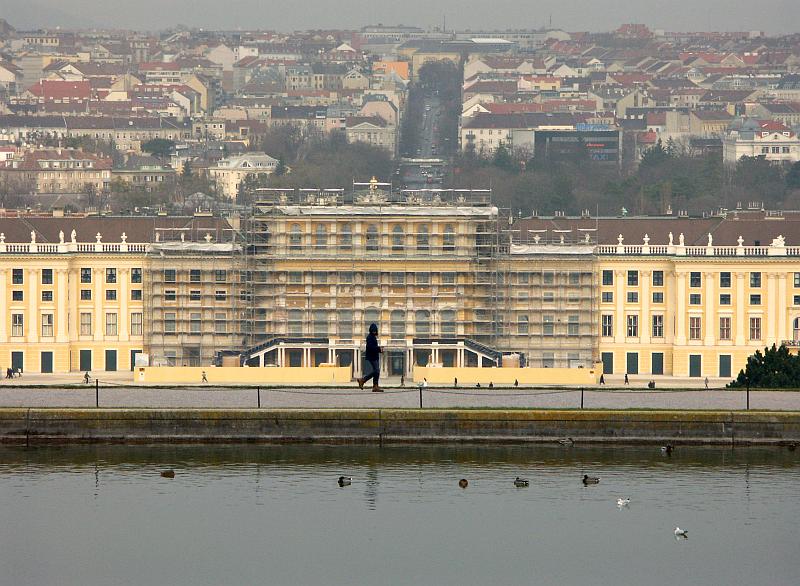
Vienna – Schönbrunn
Let me turn back from the Netherlands to Austria, another largely unknown country in the middle of Europe. This too is a country full of surprises for any outsider who goes beyond the cliches, some “unusual, bizzarre or even scandalous”. It is the only EU member that other EU member states ever felt compelled to warn about the state of its modern democracy: in 2000, when Joerg Haider formed a coalition with the Austrian People’s Party. This was widely perceived as a shocking development, as if some neo-nazi movement had captured the steering wheel of a European democracy. The reality was different, as it turned out, and media attention moved away, until, a few years later, the German press rediscovered Austria: this time as a model for its successful economic policy and welfare state reform (Austria – the better Germany, was the cover page in Stern magazine). Democracy at risk or a success model to follow: it appears that in the case of small democracies like Austria or the Netherlands it is only superlatives like this which get them any international attention.
Austria is today – by any international standards – a stable democracy, with low unemployment, an extensive welfare state, a rich (and publicly subsidized) cultural life and modern infrastructure. It is more international than ever before. Vienna is today one of the European cities with the highest percentage of foreigners resident. But Austria is also a country where the new Haider, Heinz Christian Strache (having taken over the Austrian Freedom Party he is fortunately not yet an international brand name, although he is trying hard to get there) runs election campaigns with openly xenophobic, anti-Muslim posters, including the silly slogan “Vienna must not become Istanbul”, getting 10 percent of the votes.
It is a country which allowed the vast majority of the large number of Bosnian, largely Muslim, war refugees who came in the 1990s to stay permanently. At the same time, Austria today has an interior minister who supports the expulsion of young Kosovars who have grown up in Austria, speak perfect German and are as “integrated” as any teenager born abroad can ever hope to be (see my previous blog on Arigona: unfortunately it now looks like Arigona will have to leave Austria in summer 2008). Like many European democracies Austrian society today both depends on foreigners and resents them: like no other it benefits from enlargement and rejects it at the same time. A country of paradoxes, then, like every other modern society when one looks closer. Can such a country be explained to a group of critical foreigners in two days of presentations?
This was the challenge, for my ESI colleagues and myself, in early December. To be more precise: we asked a group of leading Austrian journalists, pollsters, politicians and diplomats to explain to “Europeanisers” from the Western Balkans (negotiators with the EU, heads of EU integration departments, advisors to presidents) Austrian attitudes to their countries, the Austrian enlargement debate and how it influences policies. The particular paradox we tried to understand is well captured by three facts.
- No other country benefited as much economically from the most recent EU enlargement as Austria; no other country is likely to benefit more from further enlargement to the South East.
- No other country in the EU today is as skeptical about further enlargement – to the Balkans and to Turkey – as Austria.
- While Austrian public opinion has for many years been negative about any enlargement this did not seem to influence Austrian foreign policy in any meaningful way: all previous accession treaties were ratified, almost without opposition, in the Austrian parliament.
What, then, is the relationship between public opinion, politics and economic interest? And is the Austrian enlargement debate paradox something unique to this country, or does it hold lessons that go beyond this case of one small Alpine republic, suggesting wider lessons for the European debate as a whole?
To get (an attempt of) an answer, please read my next blog: Understanding the Austrian Psyche II.
In the meantime, may I ask you for a favor? If you have a favorite book to recommend that explains how different EU members actually work today, please let me know. Best send an email to g.knaus@esiweb.org. I will then promise to read what you recommend and share teh most interesting findings with other readers of this blog. It is one of my resolutions for 2008 that by the end of the year I will have read at least one serious book on every one of the 27 EU member states during this year … (please let me know in particular what the best books are about contemporary Luxembourg, Denmark, the Baltic states, Slovakia, Malta, Belgium and Portugal). And by the end of 2008 I hope to be able to offer my own reading list of best books about every country in the EU today.

